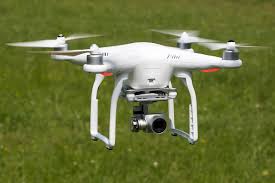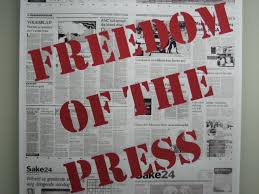
Two journalism groups and a reporter have filed a federal lawsuit challenging Texas laws that restrict what can be legally photographed by drones.
The suit was filed in Austin and argues the 2013 law puts improper limits on news gathering and is a violation of the First Amendment by making it a crime to capture images of private property or someone on the property no matter where the drone is flying.
The law bans the use of drones with the “intent to conduct surveillance,” a phrase that is not defined and is vague enough to include most news-gathering activities, allowing for arbitrary and discriminatory enforcement, the lawsuit argued according to the Austin Statesman.
“Visual journalists have faced great uncertainty about their permitted use of drones to gather the news in Texas,” forcing some to abandon drones, the least expensive and safest way to capture aerial images of great impact, the lawsuit said.
Violations can be punished by a $500 fine, rising to a Class B misdemeanor — with up to 180 days in jail and a $2,000 fine — if the image is displayed, disclosed or distributed, with each image a separate offense.

Although the law was updated in 2015, 2017 and earlier this year to add exceptions for permissible drone photography — allowing, for example, the professional use by engineers, land surveyors and insurance company employees — similar protections were not extended to journalists, the lawsuit said.
The lawsuit also challenged a provision added in 2015 that bans all drone use below 400 feet above sports venues, prisons and “critical infrastructure facilities,” including oil fields, pipelines, refineries and animal feedlots.
Although lawmakers said restricting drone use over critical facilities was an essential safety provision, the lawsuit argued that the law was intended to suppress potentially embarrassing news coverage, such as environmental problems at oil or chemical plants.
“The no-fly provisions inevitably single out journalists for disfavored treatment by prohibiting the use of drones for news-gathering purposes over facilities of public interest, while broadly excepting governmental and commercial uses of (drones) in these same zones,” the lawsuit said.
Violating the no-fly rules can bring 180 days in jail and a $2,000 fine, rising to one year in jail and a $4,000 fine for repeat offenses.
According to the lawsuit, the state’s drone laws have hampered efforts to document conditions of a facility that houses immigrant children and prompted threats from San Marcos police after a San Antonio Express-News photographer tried to document the aftermath of the Iconic Village apartment fire that left five dead in 2018.
“The threat of criminal sanction for engaging in this protected conduct effectively censors critical comment by the press,” said the lawsuit, filed by the National Press Photographers Association, the Texas Press Association (of which the American-Statesman is a member) and freelance journalist Joseph Pappalardo.





